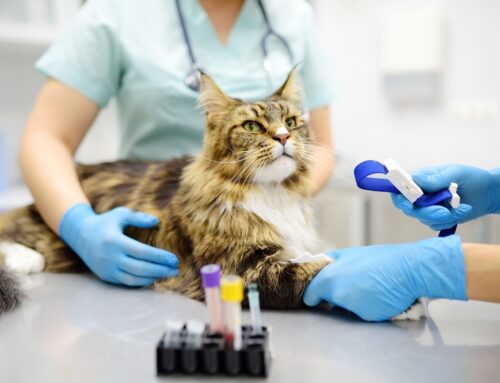Scratching an itch that won’t go away is incredibly frustrating, and can cause your pet to chew their skin raw. Our Oliver Animal Hospital team describes the main causes of pets’ itching to help you identify the signs associated with their underlying condition, so you can get your furry pal relief ASAP.
What itchiness signs do pets show?
An itchy pet is often uncomfortable enough to ensure their owner takes notice, as they lick, chew, and scratch incessantly. While occasional itchiness is normal, excessive scratching is not, and signals an underlying problem. Itchy pets often show these signs:
- Red, irritated, inflamed skin
- Ear infections
- Anal gland problems
- Hair loss
- Oozing sores
- Pustules
- Hot spots
- Reddish-brown fur stains
Your pet may be shaking their head, dragging their hind end, or rubbing their face on the carpet. In some cases, pets become so accustomed to licking and chewing, they continue to do so after their itchiness has resolved, and your veterinarian is likely to incorporate behavior modification into your furry pal’s treatment plan.
What causes itching in pets?
Your pet’s rubbing, licking, and chewing may flare at certain times of the year. Environmental allergies (i.e., atopy) cause seasonal itching, but various other health concerns can result in a pet’s itchiness. Consider these potential causes for your pet’s itch:
- Environmental allergies — Anything with which your pet comes in contact can cause atopy, especially inhaled allergens. Common environmental allergens include pollens, grasses, trees, shrubs, mold spores, dust mites, storage mites, and dander. Atopic pets can become itchy and irritated in skin areas that come in contact with an allergen. For example, your pet may experience inflamed paws after they have walked through the grass. An atopic pet can also develop widespread inflammation, chronic ear infections, and anal gland problems.
- Food allergies — Pets with food allergies are most likely allergic to the protein in their food, such as chicken, lamb, beef, dairy, eggs, or soy. Grains rarely cause a pet’s food allergy. Pets typically develop food allergies after having eaten the same diet for months or years, and their signs often manifest as chronic ear infections and itchy paws.
- Parasites — Fleas often cause a pet’s itchiness, as a protein in the pests’ saliva can trigger an allergic reaction. In addition to flea bite dermatitis, pets can become infested with mange or ear mites, which can cause intense itching.
- Skin infections — Fungal and bacterial skin infections can lead to itchy, irritated skin that your pet licks, scratches, and chews. While yeast and bacterial infections cannot be spread to another pet, ringworm is a fungal infection that can be transmitted between pets and people.
- Chronic diseases — Some autoimmune diseases and endocrine disorders can cause your pet to develop flaky skin, hair loss, skin lesions, and various other dermatologic problems.
How can I find out what is making my pet itchy?
Diagnosing the true cause of your pet’s itching can be a challenge. However, to ensure your pet receives appropriate, effective treatment your veterinarian must determine the underlying condition causing your four-legged friends’ itch:
- Allergy diagnosis — By taking your pet’s thorough health history, evaluating their signs, and performing blood or skin testing, your veterinarian can determine whether your furry pal has an allergy. Diagnosing food allergies is more complicated, as blood results are not reliable. The only accurate way to reach a food allergy diagnosis is through an exclusive food trial that can take up to 12 weeks.
- Parasite diagnosis — By performing a skin scraping or ear cytology, your veterinarian can determine whether your pet has mange or ear mites. They can detect a flea allergy when they perform your pet’s physical exam.
- Skin infection diagnosis — By taking a sample of your pet’s skin cells, your veterinarian can detect yeast or bacterial overgrowth. To diagnose ringworm, they will take a dermatophyte culture.
- Chronic disease diagnosis — To diagnose a chronic endocrine condition, such as Cushing’s disease or hypothyroidism, your veterinarian will perform various blood tests. To diagnose an autoimmune disease, such as lupus, they will perform a skin biopsy.
How will my pet’s itching be treated?

After determining the underlying cause of your pet’s itching, your veterinarian will devise an effective treatment plan. Depending on your pet’s diagnosis, they may receive the following treatment:
- Parasite prevention
- Corticosteroids for immunosuppression
- Antihistamines for itch relief
- Targeted anti-itch medications (e.g., Cytopoint, Apoquel)
- Antimicrobials
- Medicated shampoos
- Medicated ear cleaners and ointments
- Topical and oral skin supplements
- Immunotherapy
- Novel protein or hydrolyzed diet
- Medication for chronic disease
If your pet is diagnosed with an allergy, keep in mind that their condition will likely worsen as they age. Allergies typically become more severe as a pet grows older, so they will require an evolving treatment plan to remain comfortable.
Itchy pets are miserable pets, and they can also drive you crazy with all their licking and chewing. If your four-legged friend is scratching excessively, help them get relief by scheduling an appointment with our south Austin Oliver Animal Hospital team.







Leave A Comment